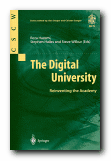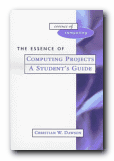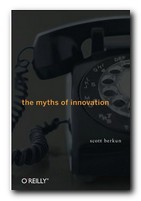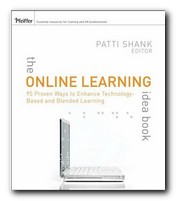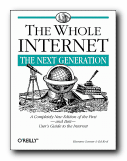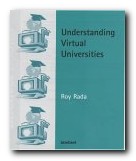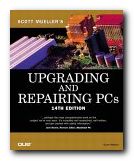the history of mathematics + technology = computers
This is book which gets mentioned in any serious history of computers. It’s a study of the mathematical, mechanical, and then the electronic developments which led to the creation of modern computers. The first part of The Computer and the Information Revolution offers an account of the development of mathematical systems, ending with the creation of binary notation in the nineteenth century. This paves the way for part two, which is a history of automatic calculation – first by mechanical devices, then by electronic means. It’s a book dense with a sense of history, and Ifrah’s span reaches effortlessly from 3500 BCE (Before the Common Era) to the maths underlying computer technology in the post-war years.
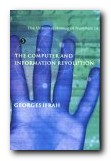 His approach can sometimes be a little disconcerting. One minute we’re in ancient Greece, next in the eighteenth century. A more smoothly integrated chronological narrative would have strengthened his case, just as more pictures and diagrams would have spared him page-length descriptions of the machines he discusses. This is a book which is crying out for illustrations.
His approach can sometimes be a little disconcerting. One minute we’re in ancient Greece, next in the eighteenth century. A more smoothly integrated chronological narrative would have strengthened his case, just as more pictures and diagrams would have spared him page-length descriptions of the machines he discusses. This is a book which is crying out for illustrations.
However, he more than makes up for this in his wide-ranging inclusiveness. Even small-scale and failed inventors are mentioned. He is particularly good at explaining the relationship between mathematical theory and what was technologically possible at any given point. He points out that there are big gaps in the development of information technology – very often caused by the absence of nought/null in the numbering system.
It’s an odd book, because the translator and editor fills in what he clearly regards as important gaps in the author’s knowledge, and the chronology is patchy too. There’s a lot of back-tracking to make up for a lack of continuous narrative.
However, his account gains a great deal of impetus as all strands converge for the creation of the first modern computers. His description of Alan Turing’s conceptual breakthrough in 1936 and his relationship to John Van Neumann’s idea for a program stored in memory become positively gripping.
In fact it’s a shame he doesn’t stick with his theme once computers had been built, because the latter part of the book spins off into cosmology, genetics, and a mosaic of reflections on culture,science, and ‘the future of mankind’. Nevertheless, for anyone remotely interested in the development of information technology, this is a book which should not be missed.
© Roy Johnson 2000
Georges Ifrah, The Computer and the Information Revolution, trans E.F.Harding, London: Harvill, 2000, pp.410, ISBN 1860467385
More on computers
More on technology
More on digital media
